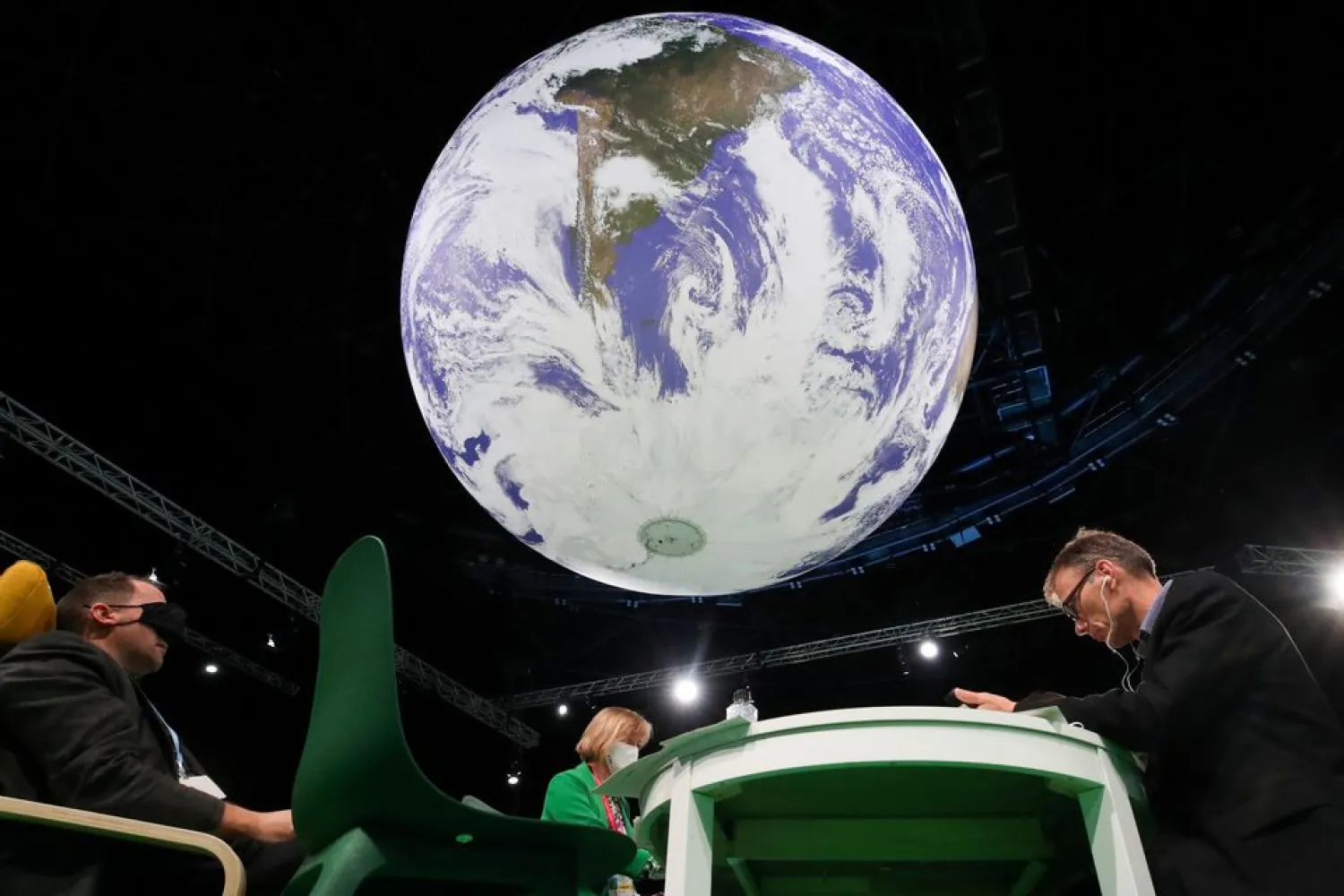UN climate talks in Scotland appeared to be tentatively heading for a deal on Saturday that conference host Britain said would keep alive a goal of capping global warming at 1.5 degrees Celsius to maintain a realistic chance of avoiding catastrophe.
Alok Sharma, the conference chairman, urged the almost 200 national delegations present in Glasgow to accept a deal that seeks to balance the demands of climate-vulnerable nations, big industrial powers, and those whose consumption or exports of fossil fuels are vital to their economic development.
"Please don't ask yourself what more you can seek but ask instead what is enough," he told them, in the closing hours of a two-week conference that has already overrun by a day. "Is this package balanced? Does it provide enough for all of us?"
"Most importantly - please ask yourselves whether ultimately these texts deliver for all our people and our planet."
The final agreement will require the unanimous consent of the countries present, ranging from coal- and gas-fuelled superpowers to oil producers and Pacific islands being swallowed by the rise in sea levels.
The meeting's overarching aim is to keep within reach the 2015 Paris Agreement's target to cap global warming at 1.5 degrees Celsius (2.7 Fahrenheit) above pre-industrial levels.
US climate envoy John Kerry said the conference was poised to make a "remarkable step".
A draft deal circulated early on Saturday in effect acknowledged that existing commitments to cut emissions of planet-heating greenhouse gases are nowhere near enough, and asked nations to set tougher climate pledges next year, rather than every five years, as they are currently required to do.
In a public check-in round with key delegations, there was encouragement for Sharma from China, the world's biggest producer and consumer of the dirtiest fossil fuel, coal, but also a country yet to develop its full economic potential.
"We noted that there are still differences on some issues and currently this text is by no means perfect, but we have no intention to open the text again," Chinese negotiator Zhao Yingmin told the conference hall.
‘Don’t kill this moment'
The West African state of Guinea, which had pressed hard on behalf of the G77 group of developing countries for greater commitments from rich countries to compensate them for "loss and damage" from unpredictable climate disasters, also indicated that the group would accept what had been achieved.
However, India, whose energy needs are heavily dependent on its own cheap and plentiful coal, signaled unhappiness.
"I am afraid ... the consensus remained elusive," Environment and Climate Minister Bhupender Yadav told the forum, without spelling out whether or not India would block a vote on the package.
EU Climate Commissioner Frans Timmermans, speaking after Yadav, asked if the marathon conference was at risk of stumbling just before the finish line and urged fellow delegates:
"Don't kill this moment by asking for more texts, different texts, deleting this, deleting that."
Scientists say that to go beyond a rise of 1.5C would unleash extreme sea level rise and catastrophes including crippling droughts, monstrous storms and wildfires far worse than those the world is already suffering.
But national pledges made so far to cut greenhouse emissions - mostly carbon dioxide from burning coal, oil and gas - would only cap the average global temperature rise at 2.4 Celsius.
However, Saturday's draft, published by the United Nations, called for efforts to reduce the huge subsidies that governments around the world give to the oil, coal and gas that power factories and heat homes.
Previous UN climate conferences have failed to single out fossil fuels for their harm to the climate.
Britain tried to unblock the issue of climate finance, one of the thorniest, by proposing mechanisms to make sure the poorest nations finally get more of the financial help they have been promised.
Developing countries argue that rich nations, whose historical emissions are largely responsible for heating up the planet, must pay more to help them adapt to its consequences as well as reducing their carbon footprints.
More money?
The draft urged rich countries to double finance for climate adaptation by 2025 from 2019 levels, offering funding that has been a key demand of small island nations at the conference.
Adaptation funds primarily go to the very poorest countries and currently take up only a small fraction of climate funding.
Britain also said a UN committee should report next year on progress towards delivering the $100 billion per year in overall annual climate funding that rich nations had promised by 2020 but failed to deliver. And it said governments should meet in 2022, 2024 and 2026 to discuss climate finance.
Even $100 billion a year is far short of poorer countries' actual needs, which could hit $300 billion by 2030 in adaptation costs alone, according to the United Nations, in addition to economic losses from crop failure or climate-related disasters.
Vulnerable nations have argued for decades that rich countries owe them compensation for the "loss and damage" from climate events that cannot be avoided.
But wealthy countries fear being found liable for such disasters and opening the door to bottomless payments.
As a result, no UN climate conference has yet yielded any funding under this heading for the countries most affected - and Saturday's Glasgow draft also made no firm commitment.
Negotiators were, however, closing in on a deal to settle rules for carbon markets - mechanisms that put a price on emissions to allow countries or companies to buy and sell "permits to pollute", or credits for absorbing emissions.









